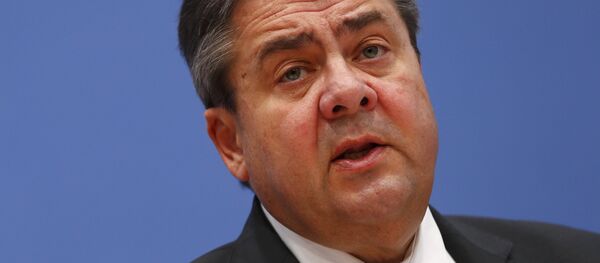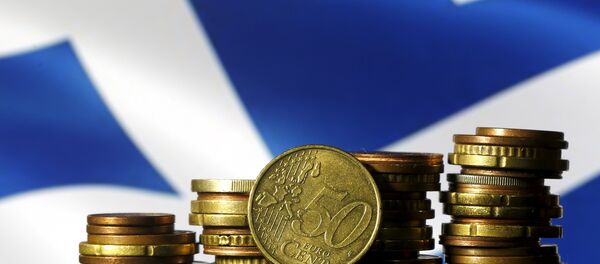Kristian Rouz – Greece’s repayment on its foreign debt due in July is looming large over the country, and the uncertainty surrounding the bailout package for the Greek government has escalated in recent days.
On Monday, the Eurozone’s finance ministers met in Brussels in an attempt to find a compromise solution to Greece’s resurfaced debt issues. A bailout review is deemed necessary for Greece to continue receiving debt relief financing, including from the International Monetary Fund (IMF), which also means Greece’s creditors are looking into the progress the nation has made on the path of economic reforms.
The size and timing of the debt relief package for Greece is an apple of discord between the nation’s numerous creditors. Moreover, the German government, one of the most prominent sponsors of the relief package for Greece, does not yet have an internally coordinated vision of the prospects of the Greek bailout.
“I hope that we will reach a solution today that ends this politically,” German Finance Minister Wolfgang Schaeuble said. “In general we’re in a position to reach a political conclusion along the lines agreed in May of last year”, allowing for a “timely disbursement” of Greece’s debt burden.
The German government previously discussed two options for dealing with the Greek bailout. First, providing Greece with bailout money without imposing further conditions this time, despite the Greek government lagging on its promises made in 2015 to implement a more decisive economic reform.
"Greece has been promised debt relief over and over again if reforms are carried out," German Foreign Minister Sigmar Gabriel said. "Now we must stand by this promise. This must not fail due to German resistance."
However, Finance Minister Schaeuble is looking at it from the money viewpoint, and in his view, the lack of responsibility and progress on economic reform on Greece’s part makes the indebted nation a rather volatile partner to further invest in.
"We are not talking about a new program but the implementation of the program agreed in 2015," Schaeuble said. "At the end of the program, in 2018, we will, if necessary, put in place additional measures that we have defined. It is about one goal — namely to help Greece become competitive.”
Schaeuble, as well as several IMF economists, agree that Greece should demonstrate its ability to decrease its budget deficit and achieve sustainable economic growth by the early 2020s through an economic reform package that would include stricter austerity, improved investment climate, deregulation, and abandonment of the most costly social programmes.
On its current schedule, Greece will have paid off all its debt by 2059, but in order to do that, this year Greece must pay off 6 billion euros in bond principal, and about 18 bln euros more in short-term bonds, interest and term loan outs – a total of 24 bln euros to be paid this year alone. During the following two decades, Greece’s yearly payments will be less than this year – an average 10 bln euros per year, with larger-scale payoffs in the 2040s and 2050s.
The IMF has expressed doubt that Greece will be able to maintain a solid budget performance after 2018, when the bailout negotiated in 2015 expires. The lack of reform and economic competitiveness is the core issue, and the Greek government needs to spur economic growth and domestic investment.
If Greece is able to achieve an average 1.3-percent yearly growth, and budget surplus of 2.6 percent, Greece’s debt-to-GDP ratio will fall to an acceptable 60 percent in 2060. However, during these four decades, economic crises, structural gluts and financial panics are all possible, so counting in the likely cyclical recessions and other shocks, real GDP growth in Greece must be above 1.3 percent.
To put this into perspective, between 1995 and 2016 Greece’s average yearly economic growth was 0.19 percent.




